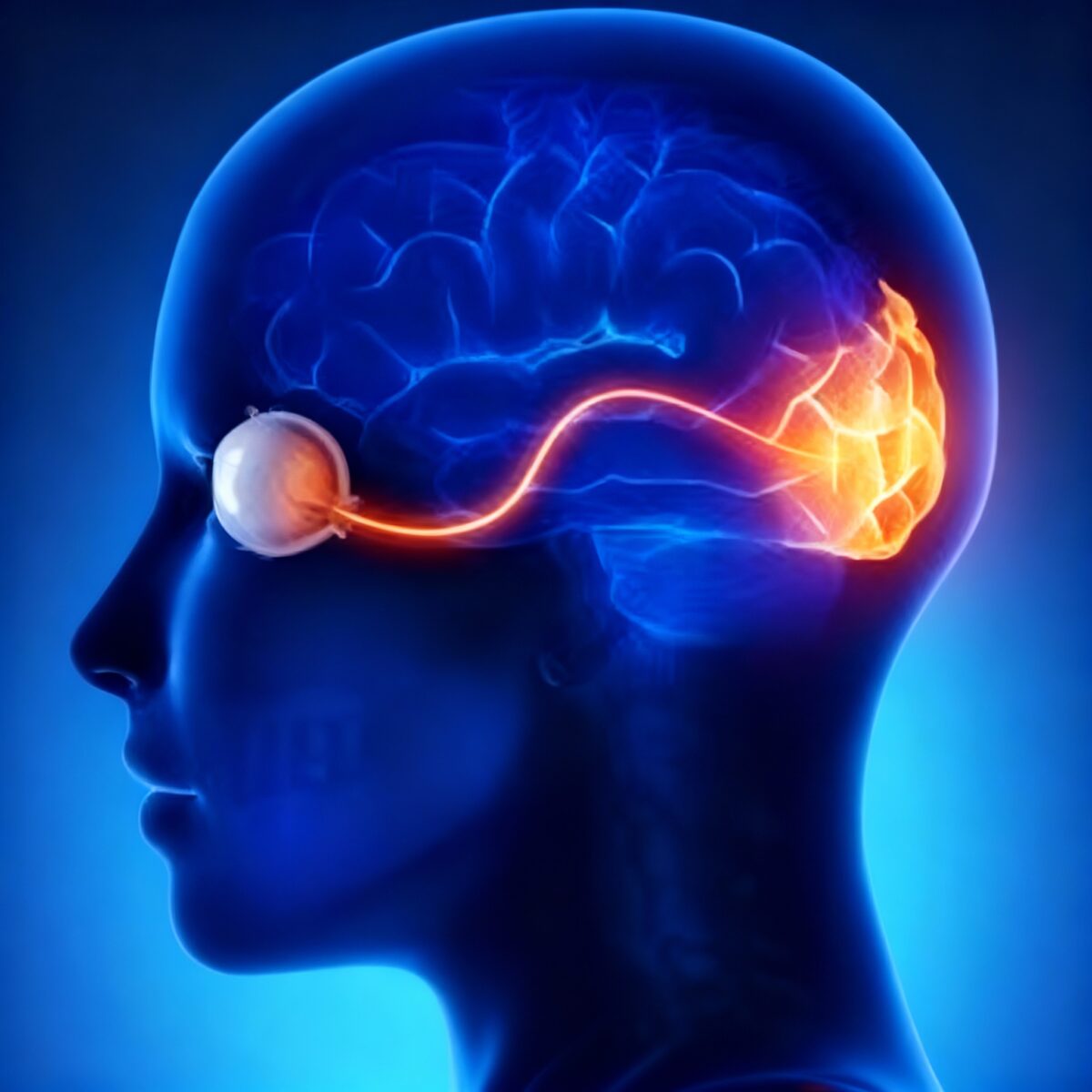Sight is among our most treasured senses, influencing the way we learn, interact, and engage with the world around us. But for some individuals, the problem isn’t in the eyes themselves; it’s in the brain’s ability to process visual information. This condition is known as Cortical Visual Impairment, and it is one of the leading causes of visual challenges in children today.
In this article, we’ll dive into what CVI really is, how it affects people, and what kind of expert care can make a difference. If you’re looking for the best eye doctor in Kerala or a trusted eye care hospital in Thrissur, this guide will help you understand CVI better and explore the right path for effective vision care.
Understanding Cortical Visual Impairment (CVI)
Unlike common eye problems like cataracts or refractive errors, Cortical Visual Impairment (CVI) is not caused by damage to the eye itself. Rather, it occurs due to damage or irregular development in the brain’s visual processing regions.
When the brain struggles to interpret what the eyes see, it results in difficulties recognizing objects, faces, or even navigating everyday spaces. Interestingly, the eyes may appear completely healthy during an examination, which often makes CVI harder to diagnose without specialized evaluation.
Common Causes of CVI
CVI can occur due to several reasons, such as:
- Lack of oxygen at birth (perinatal hypoxia)
- Traumatic brain injury
- Infections affecting the brain
- Premature birth complications
- Neurological conditions like epilepsy
Early detection plays a key role in managing CVI and improving visual outcomes.
Signs and Symptoms You Shouldn’t Ignore
Parents and caregivers are often the first to notice unusual visual behaviors in children. Some common indicators of Cortical Visual Impairment (CVI) include:
- Difficulty recognizing familiar faces
- Better response to moving objects than stationary ones
- Preference for looking at bright colors, lights, or high-contrast objects
- Fluctuating visual responses depending on the environment and fatigue
- Trouble with depth perception and mobility
If you notice any of these patterns, consulting the best eye doctor in Kerala is the first step toward proper diagnosis and tailored treatment.
How Is CVI Diagnosed?
Since CVI is a brain-based condition, diagnosing it requires a detailed and patient-centered approach. An experienced ophthalmologist or neurologist will typically conduct:
- Comprehensive eye examinations to rule out structural eye diseases
- Detailed history of the child’s birth, medical background, and neurological health
- A functional vision assessment. This focuses on how a child’s vision works in practical, day-to-day activities.
- Collaboration with occupational therapists and neurologists
The right diagnosis can open doors to therapies and strategies that significantly improve quality of life.
Expert Insights: Why Specialized Care Matters
CVI is a highly individualized condition. No two patients experience it the same way. That’s why expert insights and personalized care are crucial.
At a reputed eye care hospital in Thrissur, doctors adopt a holistic approach that combines medical expertise with therapy-based interventions. This might include:
- Visual Stimulation Therapy: Activities that encourage the brain to process visual input more effectively.
- Occupational Therapy: Strategies to help children navigate daily tasks using vision, touch, and sound.
- Educational Support: Working with teachers to create classroom environments suitable for children with CVI.
- Parental Guidance: Training parents to use contrast-rich toys, consistent routines, and sensory cues to support vision development.
When guided by the best eye doctor in Kerala, these strategies give children the best chance to maximize their visual potential.
Living with Cortical Visual Impairment: Practical Tips
Families often wonder how they can make life easier for a loved one with CVI. Here are some practical, expert-backed suggestions:
-
Create a Vision-Friendly Environment
Use high-contrast objects (black-and-white toys, brightly colored books) and keep spaces clutter-free.
-
Reduce Visual Stress
Limit background distractions like TV or loud noises that can overwhelm the brain’s processing ability.
-
Use Movement to Attract Attention
Objects in motion are often easier for individuals with CVI to see and recognize.
-
Encourage Consistency
Consistent practice and repetition train the brain to develop stronger visual pathways.
-
Work Closely with Specialists
Collaborating with doctors, therapists, and educators ensures that the child’s unique needs are always prioritized.
Why Dr. Rani Menon Maxivision Eye Hospital Stands Out
When it comes to advanced vision care and management of conditions like Cortical Visual Impairment (CVI), Dr. Rani Menon Maxivision Eye Hospital in Thrissur has earned the trust of countless families. From precise diagnosis to personalized rehabilitation plans, every patient is treated with compassion and expertise. The presence of some of the best eye doctors in Kerala ensures that each case of CVI is addressed with careful attention, blending medical knowledge with holistic support.
What truly sets Dr. Rani Menon Maxivision Eye Hospital apart is its patient-first approach. Families are guided through every step, from understanding the condition to adopting lifestyle strategies that make a real difference. The hospital’s multidisciplinary team—including ophthalmologists, neurologists, and vision therapists—works together to create the most effective care pathway. With cutting-edge facilities and a reputation as a leading eye care hospital in Thrissur, it remains the top choice for those seeking hope, clarity, and a brighter visual future.
The Road Ahead: Hope and Progress in CVI Care
While Cortical Visual Impairment (CVI) presents unique challenges, research and clinical care continue to advance rapidly. With early diagnosis, consistent therapy, and family support, children with CVI can improve their visual responses and lead fulfilling lives.
Parents often feel overwhelmed at first, but with guidance from experts, they find that small, steady steps lead to remarkable progress.
Conclusion: Taking the First Step Toward Better Vision Care
Cortical Visual Impairment is not just about vision—it’s about how a child experiences the world. Recognizing the signs early, seeking expert medical advice, and adopting supportive strategies can transform outcomes.
If you’re searching for the best eye doctor in Kerala or a trusted eye care hospital in Thrissur, our team is here to guide you with compassion, expertise, and state-of-the-art care.

